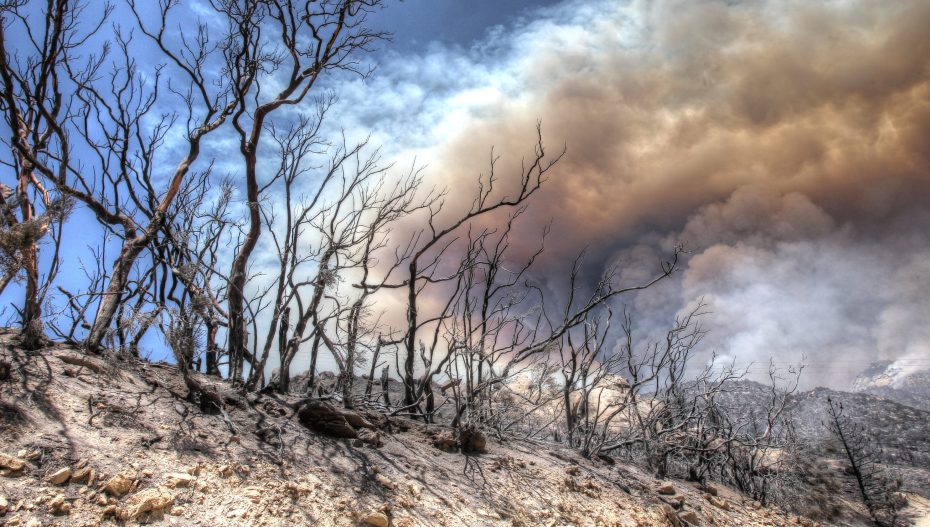India’s government faces the challenge of mitigating the economic concerns of the southern states, which are demanding their due share within the country’s federal framework and rebelling against ‘fiscal injustice’.
The main point of contention is the alleged discrimination in the distribution of central funds against the more developed South Indian states not ruled by the BJP as compared to its pro-BJP northern counterparts, which contribute less to the national economy.
Estimates show that out of the 28 states and eight union territories in India, the combined contribution of five South Indian states — Tamil Nadu, Karnataka, Kerala, Telangana and Andhra Pradesh — to the country’s GDP is more than 30 per cent. These remittance-rich states also contribute significantly to India’s forex reserves, which recently reached a record high of $648.7 billion.
In 2018, the ruling Left government in Kerala criticised the Union government for failing to provide adequate support to the ‘Rebuild Kerala’ initiative after the state experienced its worst floods in a century.
In April 2024, Karnataka and Tamil Nadu were at loggerheads with the Union government over the release of relief funds for casualties caused by floods, Cyclone Maichung and drought. During protests in Delhi, Karnataka highlighted the pending drought relief as a key issue, alongside injustice in tax dispersal.
It was only after the respective state governments moved the Supreme Court, invoking the violation of the fundamental rights guaranteed in the Indian constitution, that the Union government released Rs 3,730.32 crore ($446.70 million) as ‘relief assistance for natural calamity’ from the National Disaster Response Fund during the last week of April.
While examining the petition filed by the Karnataka government, the Supreme Court division bench stated, ‘Let there not be a contest between the Union and states.’
t faces the pressing challenge of mitigating the economic concerns of the southern states, which are demanding their due share within the country’s federal framework and rebelling against ‘fiscal injustice’.
While examining the petition filed by the Karnataka government, the Supreme Court division bench stated, ‘Let there not be a contest between the Union and states.’
During our fieldwork in the flood and landslide-affected regions of northern Kerala in 2019 and 2020, the widespread perception that exists became clear: the state government should ‘own’ the climate disasters and provide compensation to victims for both human and economic losses.
Earlier this year, the chief ministers and ministers of Karnataka and Kerala, along with prominent leaders of Tamil Nadu’s ruling party DMK), organised a protest in the national capital against unjust practices in tax devolution and grant-in-aid from the Union government.
In response to the Union Budget 2024, D.K. Suresh, a Lok Sabha member and brother of the Karnataka deputy chief minister, made a provocative separatist threat, stating, “South Indian states may be forced to demand a separate nation if the Centre does not provide them with adequate funds.”
Although much has already been discussed about the economic dimensions of the north-south drift in Indian politics, its underlying connection to climate change remains largely unexamined.
Climate scientists have warned that South India is more sensitive than the rest of the country to changes in temperature. In a 2021 report, the Intergovernmental Panel on Climate Change suggested that global warming could lead to extreme rainfall events in South India, in addition to monsoon rains. The Western Ghats, renowned for tourism and agriculture and primarily traversing Karnataka, Tamil Nadu, and Kerala, are highly susceptible to climate-related disasters.
Research has shown the link between urban-centric growth models and the likelihood of climate disasters in emerging economies, and this is particularly applicable in a development-craving, corruption-prone country like India.
The South Indian states face an environmental opportunity cost by growing at a rate higher than the national average and contributing more to the federal coffers than what they are allocated in return.
Over the past few years, compensation for climate disasters through central funds has become a point of contention between the Union government and the southern states of India.
Welfarism and competitive populism have made deep inroads in the political landscape of South India since the 1960s. State governments have no alternative but to respond proactively to the climate crises affecting the people.
Even though the Union Government did not release sufficient funds, the DMK-led Tamil Nadu government granted Rs 6,000 each to those affected by the 2023 floods in seven districts. Politically, they have no choice but to advance the relief as the previous AIADMK government had granted compensation to those impacted by Cyclone Gaja in 2018.
Due to populist pressures, the Karnataka government decided in 2020 to give higher compensation to flood victims than what the Centre mandated, despite worsening state finances.
The new government in India must tackle the recurring climate disasters and associated casualties affecting its economic powerhouse in the south, which drives the country’s growth engine.
New Delhi can no longer go forward with its leadership role in the Global South on climate change debates by overlooking its own southern states striving for ‘climate justice’ within India’s federal arrangements.
Also Read: T20 World Cup: High Octane Indo-Pak Clash Today In New York












